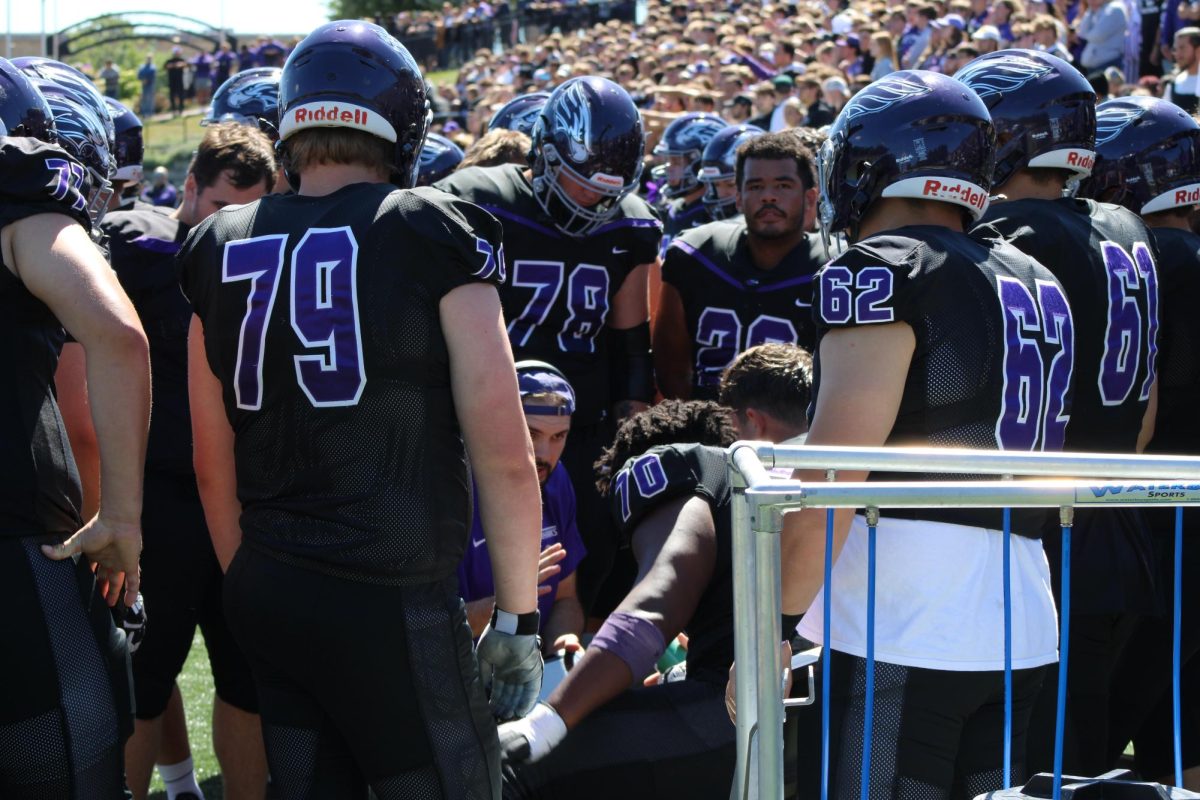Over the last few years, the NCAA Football Rules Committee has adopted significant rule changes that impact the way teams game plan. In 2022, they adjusted several penalty rules, including defensive holding and blocking below the waist. In 2023, they implemented several new rules for head coaches, including abolishing consecutive timeouts.
Despite several noteworthy adjustments in recent years, no recent slate of rule changes may be as significant as the 2024 slate. With these changes impacting several aspects of college football, we may also see changes in team success.\
Yet, rule changes never seem to faze the UW-Whitewater football team. The Warhawks have achieved at least 12 wins in 15 of the last 18 seasons, and college football has changed substantially since 2005.
“It’s just the nature of the beast,” head coach Jace Rindahl said. “It’s how the game is evolving, and you better adapt and figure it out.”
Nonetheless, these changes will impact the No. 3 Warhawks’ game plan, as well as the game plan of every college football team. Some required regulations impact the game’s pace and play, forcing changes onto every team.
For example, the NCAA adopted a two-minute timeout rule, adding an automatic timeout when two minutes remain in each half. Also called the two-minute warning, this rule has been a staple of NFL timing since the early days of the league, so it’s not an unknown rule to most.
While Rindahl prefers not having a two-minute timeout, the addition allows for more opportunity in terms of play calling. It not only gives the offense an extra timeout during a two-minute drill situation, but also gives the defense a chance to regroup and catch their breath.
“We’re big on clock management, dictating tempo, so this has definitely been something that we’ve had to spend some time on,” Rindahl said. “You have another resource to stop the clock … it could also slow down momentum.”
Another timing rule adopted by Division III involves first-down timing, where the game clock will continue to run after a first down is gained in bounds. This rule is inactive after the two-minute timeout but continues at the beginning of the second half.
Both the Division I and Division II committees adopted this rule prior to the 2023 season, but the Division III Rules Committee opted for a year of review. After a full season of contemplation, the rule is now in effect for Division III.
“There’s obviously going to be a little bit of a change,” Rindahl said. “Maybe you get one less possession because of the clock moving a little bit quicker. It still comes down to situational football.”
One of the biggest emphases for these new changes involves technology. While coach-to-player helmet communication only impacts Division I FBS teams, all schools can now have up to 18 tablets for use on both the sideline and in the locker room. The tablets are designed to show only in-game footage, which can be viewed during the game.
“It gives coaches a training wheel,” Rindahl said. “You don’t have much time, so you’ve got to make sure that you prioritize the things that need to be addressed and fixed via tablets.”
On top of these new rules, the Division III Management Council approved a 40-team playoff for football. Similarly to how Division I FBS expanded its playoff bracket from four to 12 teams, the new system allows the Championships Committee to select more at-large bids for the postseason. However, those at-large bids will be selected via a computer program, known as the NCAA Power Index (NPI), rather than by the committee members themselves.
Like last year, all 28 conferences that participate in the postseason send their conference champion for an automatic spot in the playoffs. Now, instead of four teams receiving an at-large bid, 12 additional teams are selected into the bracket, giving the Warhawks more flexibility.
Despite the playoff expansion, Rindahl is not focusing on the extra opportunities. The current focus is the regular season, and the goal is to win the conference, as they have not received that honor since 2021.
“At the end of the day, the playoffs don’t really matter,” Rindahl said. “It’s about the games that you have scheduled, and it’s about winning a conference championship. You can’t look too far ahead.”
Rule changes impact everyone, but Rindahl and company are looking to use them to their advantage. The Warhawks return to Perkins Stadium on Sept. 21 for their sixth matchup in as many years against the University of Mary Hardin-Baylor.



